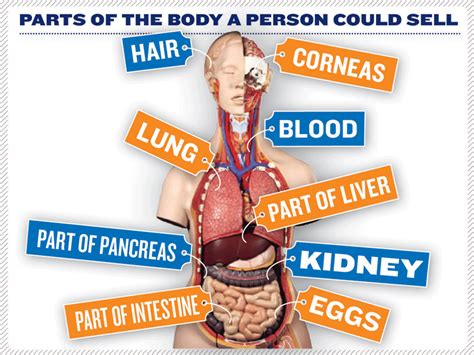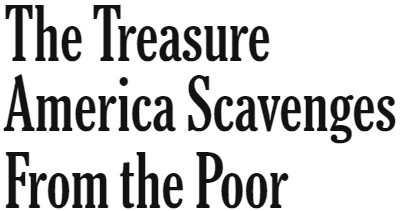A core libertarian principle is that people have the right to do whatever they want with their own bodies. And that includes things that may be harmful, such as taking drugs, smoking, and over-eating.
It also includes personal choices that are not harmful, but may upset the sensibilities of others, such as selling your organs.
As you might expect, I also think people should be allowed to sell their plasma.
But this rubs some people the wrong way.
Vanessa Veselka has a column in the New York Times grousing about the fact that poor people in the United States have the freedom to benefit from voluntary exchange.
Very few countries allow payment for plasma, in part out of concern that financially vulnerable people would risk their health for money. Other developed nations place stricter limits on the number of times one can donate. In Britain, plasma can be given every two weeks; in Germany, it’s up to 60 times a year. The United States allows a person to sell plasma 104 times a year. The word “sell” is, of course, rarely used in the United States. Instead, the term is “donate,” which allows companies to pretend they are not in the business of scavenging the bodies of poor people for biological treasure. Our system of “donation” is so successful that the United States provides about two-thirds of the plasma available worldwide and accounts for 35 percent to 40 percent of the plasma used in medicine in Europe — so much of which comes out of the veins of America’s poor.
The author is right, of course, that people sell rather than donate their plasma.
Other than that, however, her hostility does not make sense. The only good news is that Ms. Veselka does not want to prohibit plasma sales.
I have no problem with people being paid for plasma. I just think that companies should take less of the plasma and that donors should be paid more.
Since I sold plasma during my college years, I would have been happy if there was more compensation. But I also would have been happy if I was paid more when I worked at the Heritage Foundation and Cato Institute.
We all want to receive more income and we all want to pay less for the things we buy.
What makes capitalism a moral system is that there’s no ability to use coercion to turn our preferences into reality.
P.S. Returning to the topic of organ sales, there’s also a very persuasive utilitarian case because many lives would be saved. Plasma sales presumably have the same indirect effect.


